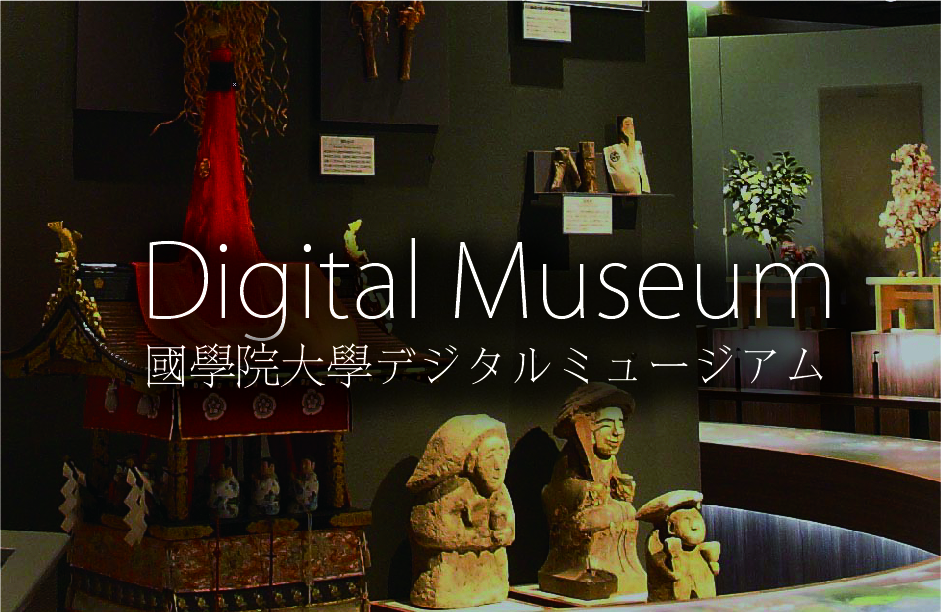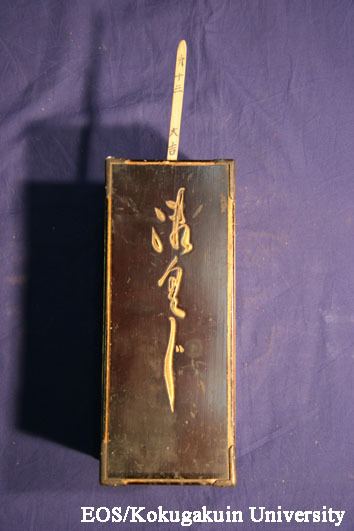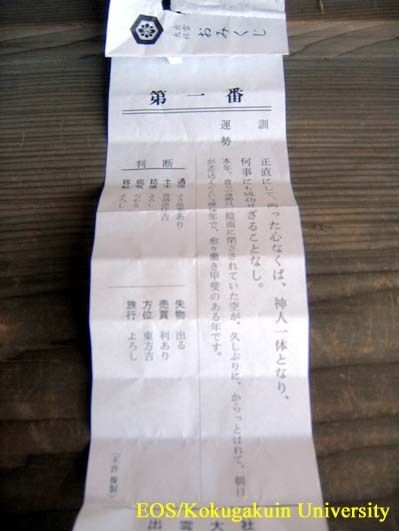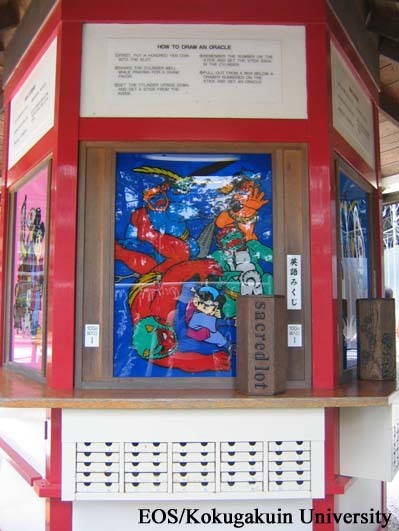- トップ
- Encyclopedia of Shinto
- Omikuji
Encyclopedia of Shinto
| Main Menu: | |
| Links: |
詳細表示 (Complete Article)
| カテゴリー1: | 4. Jinja (Shrines) |
|---|---|
| カテゴリー2: | Offerings and Talismans |
| Title | Omikuji |
| Text | Also called mikuji, a form of divination used to make decisions or determine the fortune of an undertaking. The term kuji suggests two meanings, one being the use of random chance to render an impartial verdict, and the second involving a querying of the divine will in cases where the kami's judgment is thought to be necessary.The term mikuji refers to the latter sense of a type of divination carried out when knowledge of the divine will is needed in order to reach a judgment on a pending question, a determination of auspiciousness or inauspiciousness, good or evil, or to choose a successorsor to the headship of a business or household. Many methods of kuji are used, but one used in ancient times involved writing possible outcomes or names on twisted pieces of paper (hineribumi), praying over these, and then choosing one. This method is used even today in provincial festivals when selecting the person to be in charge (tōnin) or other religious roles for the coming year; in such cases, names of candidates are written on pieces of paper and the choice determined by waving a ritual wand (gohei) over them until a piece of paper sticks to the gohei. Another method, often used for divining personal fortunes, involves drawing straws or thin sticks from a cylinder and then receiving a printed fortune or poem corresponding to a cypher printed on the stick. This is the type of mikuji found most commonly at shrines today. — Suzuki Kentarō |
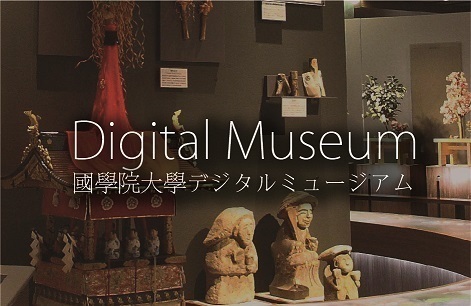
Footage of worshipers drawing omikuji. Money is placed in the offering box and then the lot is drawn. Omikuji with a positive content are taken back home by worshipers, whereas omikuji that predict a negative outcome are often attached to trees or ropes found on the shrine grounds.
2007年 **月 **日
Ōsawa Kōji




